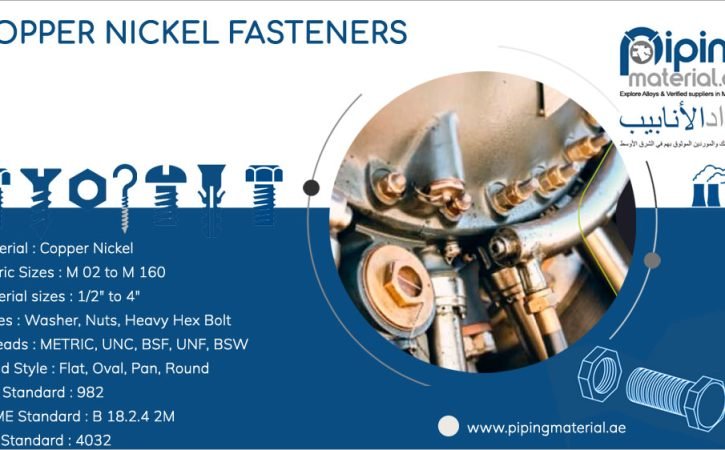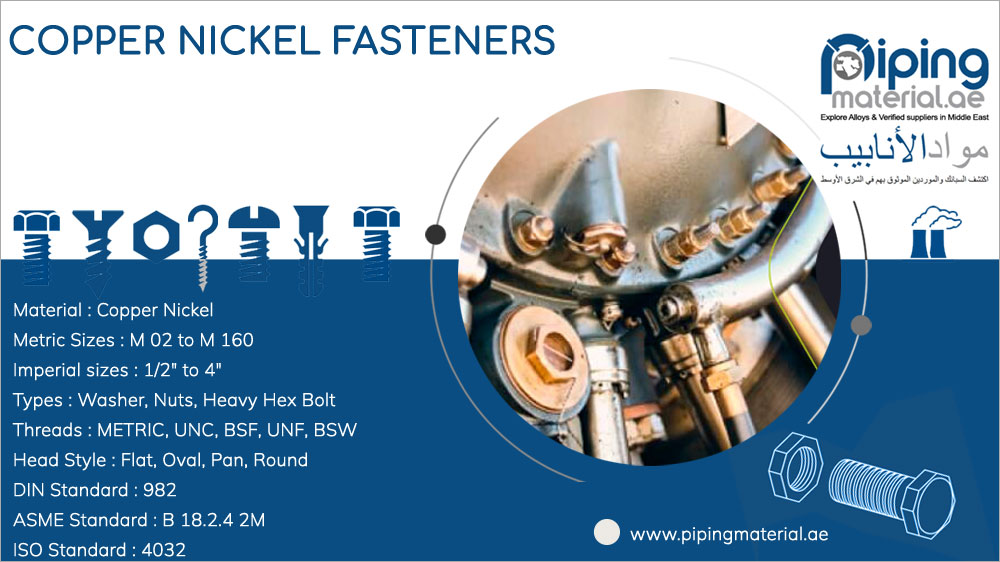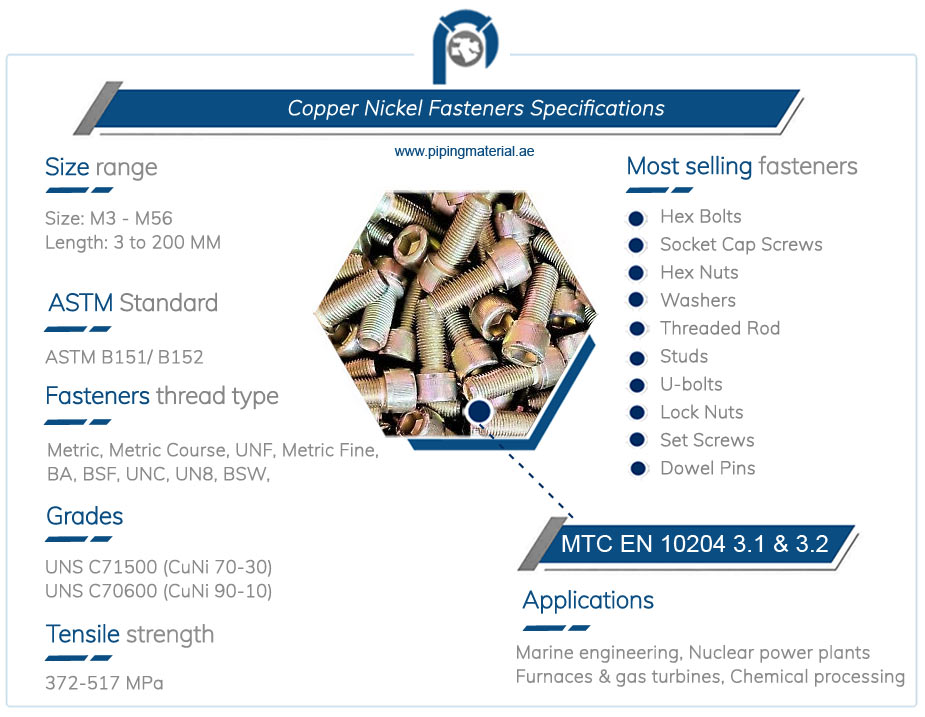
In the vast world of engineering, the search for materials that combine strength, corrosion resistance, and lightweight properties is never-ending. The quest to develop innovative alloys that can withstand extreme conditions while maintaining structural integrity has led to the emergence of remarkable materials like Titanium bars and Copper Nickel fasteners. These two extraordinary components have become crucial elements in various industries, ranging from aerospace and marine to automotive and construction. In this blog, we will delve into the fascinating world of Titanium bar and Copper Nickel fasteners and explore why they have become such a powerful duo in modern engineering.
Titanium Bars: A Light Yet Indomitable Force
Titanium is a metal renowned for its exceptional strength-to-weight ratio, making it one of the most sought-after materials in engineering applications. Discovered in the late 18th century, it wasn’t until the mid-20th century that Titanium started to find its way into industrial use due to its challenging extraction process. However, once refined, Titanium quickly proved its worth, especially in the aerospace industry.
One of the most outstanding features of Titanium is its low density, which is approximately half that of steel. This attribute significantly reduces the overall weight of structures without compromising strength. Consequently, it has played a crucial role in the development of modern aircraft, where every pound saved can have a significant impact on fuel efficiency and overall performance.
Moreover, Titanium exhibits remarkable resistance to corrosion, even in harsh environments. Unlike many metals that succumb to rust and degradation when exposed to moisture and salt, Titanium forms a protective oxide layer on its surface, shielding it from further deterioration. This quality makes it invaluable in marine applications, where it is used in ship hulls, propellers, and offshore platforms.
Beyond its aerospace and marine applications, Titanium bars are also utilized in medical devices, chemical processing equipment, sports equipment, and even in architecture. Its biocompatibility and ability to withstand extreme temperatures make it a perfect candidate for medical implants and surgical instruments.
Copper Nickel Fasteners: Where Strength Meets Resilience
Copper Nickel alloys, often referred to as Cupronickel, are a group of materials composed of copper, nickel, and other trace elements. This unique combination results in a family of alloys with exceptional properties, most notably their resistance to corrosion and biofouling. The two most common compositions are 90/10 (90% copper, 10% nickel) and 70/30 (70% copper, 30% nickel).
One of the primary reasons for the popularity of Copper Nickel fastener is their remarkable ability to withstand the harsh conditions of marine environments. When ships and offshore structures are subjected to the relentless assault of saltwater, traditional materials like steel often succumb to corrosion. However, Copper Nickel fasteners maintain their integrity, extending the lifespan of critical marine components and reducing maintenance costs.
These alloys are also extensively used in heat exchangers, condensers, and desalination plants due to their excellent thermal conductivity and corrosion resistance. In the face of brackish water and high temperatures, Copper Nickel fasteners prove their reliability time and again.
Additionally, Copper Nickel alloys find their way into coin minting, electrical connectors, and various industrial applications. The combination of copper’s excellent electrical conductivity and nickel’s strength makes them indispensable in electrical and electronic engineering.
A Powerful Duo in Engineering
When Titanium bars and Copper Nickel fasteners combine forces, their unique properties complement each other, resulting in a powerful duo that meets the most demanding engineering challenges.
In marine applications, such as shipbuilding and offshore platforms, the use of Titanium bars and Copper Nickel fasteners ensures not only strength and durability but also the prevention of galvanic corrosion. The distinct nobility of these materials reduces the risk of electrochemical reactions when they come into contact with each other, safeguarding critical components and structures in saltwater environments.
In aerospace and automotive industries, Titanium’s lightweight properties help reduce fuel consumption and enhance performance, while Copper Nickel fasteners ensure reliability and safety even in extreme conditions.
In the medical field, the biocompatibility of Titanium makes it an ideal choice for implants, and the corrosion resistance of Copper Nickel alloys makes them suitable for surgical instruments that require frequent sterilization.
In conclusion, the extraordinary combination of Titanium bars and Copper Nickel fasteners has revolutionized modern engineering across various industries. Their strength, corrosion resistance, and lightweight properties have opened new possibilities and allowed engineers to push the boundaries of innovation. As technology continues to evolve, we can only anticipate that these materials will play an even more significant role in shaping the future of engineering and beyond












